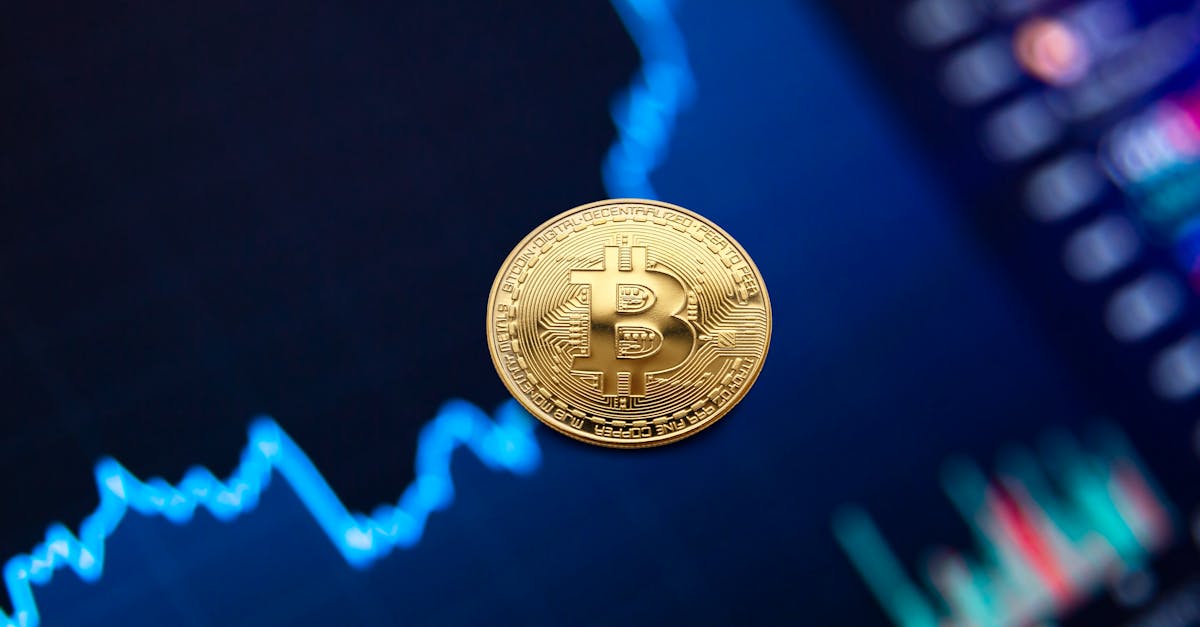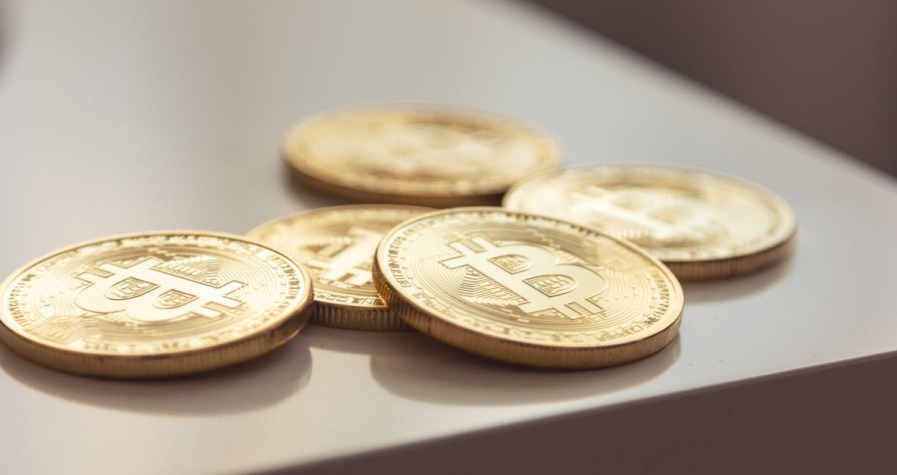Sending money across borders traditionally involves hefty fees lengthy processing times and mountains of paperwork. Bitcoin offers a revolutionary alternative that’s transforming how you can transfer value internationally. This digital currency enables you to send funds anywhere in the world within minutes rather than days.
Whether you’re supporting family abroad making international purchases or conducting business globally Bitcoin provides a decentralised solution that bypasses traditional banking systems. You’ll discover that cryptocurrency transactions often cost significantly less than conventional wire transfers or money transfer services.
Understanding how to send Bitcoin internationally isn’t just about the technical process—it’s about accessing financial freedom and efficiency. With proper knowledge you can navigate this digital landscape confidently whilst avoiding common pitfalls that might compromise your transactions or security.
How Bitcoin International Transfers Work
Bitcoin transfers operate through a decentralised network of computers called nodes that validate and record every transaction on a public ledger known as the blockchain. Your Bitcoin transfer doesn’t rely on traditional banking infrastructure or government oversight, making international transactions function identically to domestic ones.
The Blockchain Network Process
The Bitcoin network processes your international transfer through a peer-to-peer system that eliminates intermediaries. When you initiate a transfer, your transaction broadcasts to thousands of nodes worldwide that verify the transaction’s authenticity using cryptographic algorithms.
Miners compete to include your transaction in the next block by solving complex mathematical puzzles, with successful miners earning Bitcoin rewards for their computational work. The network adds completed blocks to the blockchain every 10 minutes on average, creating a permanent and unalterable record of your transfer.
Transaction Validation and Confirmation
Your Bitcoin international transfer receives its first confirmation once miners include it in a block. Additional confirmations occur as subsequent blocks build upon the block containing your transaction, with most exchanges and services requiring 3-6 confirmations for security purposes.
The validation process verifies that you own the Bitcoin you’re sending and prevents double-spending through the network’s consensus mechanism. Each confirmation exponentially increases the security of your transaction, making it practically impossible to reverse after multiple confirmations.
Global Accessibility and Speed
Bitcoin international transfers function 24/7 without banking hours or holiday restrictions that typically delay traditional cross-border payments. Your transfer reaches its destination within minutes to hours regardless of geographic location, compared to 3-5 business days for conventional wire transfers.
The network treats a transfer from London to Tokyo identically to a transfer within the same city, with transaction fees determined by network congestion rather than distance or destination country. This uniform approach makes Bitcoin particularly effective for international remittances and business payments across different time zones.
Setting Up Your Bitcoin Wallet
Setting up a Bitcoin wallet creates your digital gateway for international transfers. You’ll store and manage your BTC through this essential tool that functions as your personal cryptocurrency bank account.
Choosing the Right Wallet Type
Software wallets operate through mobile or desktop applications that you download directly to your device. These wallets offer convenience for regular Bitcoin transfers whilst maintaining reasonable security through encryption protocols.
Hardware wallets provide maximum security through physical devices that store your private keys offline. You connect these USB-like devices to your computer only when sending Bitcoin internationally, protecting your funds from online threats.
Web wallets function through internet browsers and offer quick access from any device with internet connectivity. Popular exchanges often provide web wallet services, though you sacrifice some security for convenience.
Hosted wallets place your Bitcoin under third-party management through exchanges or wallet providers. These services handle security maintenance and backup procedures, making them suitable for beginners who prioritise ease of use over complete control.
| Wallet Type | Security Level | Ease of Use | Best For |
|---|---|---|---|
| Software | Medium | High | Regular users |
| Hardware | Highest | Medium | Long-term storage |
| Web | Low-Medium | Highest | Quick access |
| Hosted | Medium | Highest | Beginners |
Creating and Securing Your Wallet
Download your chosen wallet from official sources only to avoid malicious software that could compromise your Bitcoin security. Verify the developer’s digital signature and check app store ratings before installation.
Set up two-factor authentication immediately after installation to add an extra security layer. This feature requires a second verification method, typically through your mobile phone, when accessing your wallet.
Generate your recovery phrase during the initial setup process and write down these 12-24 words in the exact order provided. Store this phrase offline in multiple secure locations, as it’s your only method to recover Bitcoin access if your device fails.
Create a strong password combining uppercase letters, lowercase letters, numbers and symbols to protect your wallet from unauthorised access. Use a unique password that you don’t share with other accounts or services.
Test small transactions before sending large amounts internationally to verify your wallet functions correctly. Send a minimal Bitcoin amount to yourself or a trusted contact to confirm the process works smoothly.
Update your wallet software regularly to maintain security patches and access new features. Enable automatic updates when available to ensure continuous protection against emerging security threats.
Step-by-Step Guide to Sending Bitcoin Internationally
Sending Bitcoin internationally follows three essential steps that ensure secure and accurate transfers across borders. These steps remain consistent whether you’re transferring funds to neighbouring countries or distant continents.
Obtaining the Recipient’s Bitcoin Address
Bitcoin addresses serve as unique identifiers for cryptocurrency wallets, functioning like digital postal codes for international transfers. You’ll receive this alphanumeric string directly from your recipient or by scanning their wallet’s QR code.
Verification methods include:
- Direct copy-paste from the recipient’s message or email
- QR code scanning using your wallet’s camera function
- Manual entry with character-by-character confirmation
- Address validation through wallet software checks
Accuracy remains critical when handling Bitcoin addresses, as incorrect entries result in permanent fund loss. Bitcoin transactions operate without reversal mechanisms, making initial precision essential for successful international transfers.
Address format examples:
- Legacy addresses beginning with “1”
- Segwit addresses starting with “3”
- Bech32 addresses commencing with “bc1”
Initiating the Transfer
Transfer initiation requires entering the recipient’s address and specifying your transfer amount in your chosen wallet interface. You can input amounts in Bitcoin (BTC) or your local currency equivalent, with automatic conversion rates applied.
Essential transfer parameters:
- Recipient Bitcoin address verification
- Transfer amount selection (BTC or fiat equivalent)
- Transaction fee calculation based on network conditions
- Priority level selection affecting confirmation speed
Network congestion influences transaction fees, with higher fees ensuring faster processing during peak periods. Your wallet displays estimated fees ranging from economy (slower) to priority (faster) options for international transfers.
Fee considerations include:
- Network traffic levels affecting base fees
- Transaction size measured in bytes
- Confirmation time preferences
- Wallet provider fee structures
Confirming Transaction Details
Transaction confirmation represents your final opportunity to verify transfer accuracy before broadcasting to the Bitcoin network. This irreversible step commits your international transfer to the blockchain for processing and validation.
Critical verification elements:
- Recipient address accuracy check
- Transfer amount confirmation
- Fee acceptance for chosen priority level
- Final balance calculation after deduction
Your wallet broadcasts the confirmed transaction to Bitcoin nodes worldwide, beginning the validation process through network miners. International transfers receive identical treatment to domestic transactions, with confirmation times varying from 10 minutes to several hours based on network activity.
| Confirmation Level | Security Level | Typical Timeframe |
|---|---|---|
| 1 Confirmation | Basic | 10-60 minutes |
| 3 Confirmations | Standard | 30-180 minutes |
| 6 Confirmations | High Security | 60-360 minutes |
UK crypto businesses must collect additional information for international transfers equalling or exceeding €1,000 (£1,000), including sender and receiver identification details, account numbers, and identity documents such as passports or birth certificates. This compliance requirement follows Money Laundering regulations designed to combat illicit finance activities.
Transaction Fees and Processing Times
Bitcoin transaction fees are paid to miners who validate your transactions on the network. These fees vary based on network demand and transaction complexity, measured in satoshis per byte where 1 satoshi equals 0.00000001 BTC.
Understanding Network Fees
Transaction fees depend on your transaction size measured in bytes and the current fee rate across the Bitcoin network. Higher fees incentivise miners to prioritise your transaction, resulting in faster confirmations and reduced waiting times.
Fee amounts can range from a few pence to over £80, depending on network congestion at the time of your transfer. Most wallet applications offer fee options such as “Fastest,” “Fast,” or “Eco,” each affecting your confirmation time and total cost.
| Fee Type | Typical Cost Range | Confirmation Time | Best Used For |
|---|---|---|---|
| Eco/Low | £0.50 – £3 | 30-60+ minutes | Non-urgent transfers |
| Standard | £3 – £10 | 10-30 minutes | Regular transactions |
| Fast/Priority | £10 – £80+ | 5-15 minutes | Urgent transfers |
Paying a low fee can delay your transactions significantly or cause them to become stuck in the network. During off-peak times, you can reduce fees by timing your transfers strategically or combining multiple payments into a single transaction.
Factors Affecting Transfer Speed
Bitcoin’s network processes approximately 7 transactions per second, creating natural limitations on transaction throughput. Average confirmation time reaches roughly 10 minutes per block, though multiple confirmations are recommended for larger amounts.
Network congestion represents the primary factor influencing your transfer speed. During high-demand periods, transactions compete for inclusion in the next block, with miners prioritising higher-fee transactions first.
Key speed determinants include:
- Fee size: Higher fees accelerate processing by encouraging miner selection
- Network congestion: Peak usage periods slow down all transactions regardless of fees
- Confirmation requirements: Larger transfers typically require 3-6 confirmations, extending total time to 30-60 minutes
- Transaction complexity: Multi-input transactions consume more block space and may process slower
Your transaction receives its first confirmation once included in a block, with additional confirmations providing enhanced security against double-spending attempts. Most exchanges and merchants consider transactions with 3-6 confirmations as fully settled and irreversible.
Legal and Regulatory Considerations
Regulations vary significantly by country when sending Bitcoin internationally. Many jurisdictions classify cryptocurrency as property, triggering legal and regulatory requirements related to anti-money laundering (AML) and know your customer (KYC) rules, particularly for substantial amounts.
Compliance Requirements by Country
United Kingdom – The FCA regulates crypto firms and enforces AML compliance for all Bitcoin transfers. Platforms must collect sender and recipient details for transfers exceeding €1,000, adhering to UK anti-money laundering laws.
European Union – The Common Reporting Standard (CRA) facilitates information sharing between member countries, affecting reporting requirements for international Bitcoin transfers above specific thresholds.
Switzerland, Sweden, Turkey, UAE, and Venezuela – Tax authorities classify internal wallet transfers as non-taxable events but impose taxes on transfers to external wallets, meaning compliance depends on national tax authority definitions and transfer purposes.
United States – FinCEN requires Bitcoin exchanges to implement comprehensive KYC procedures and report suspicious activities, with transaction monitoring for amounts exceeding $10,000.
Other Jurisdictions – Countries maintain distinct guidelines for cryptocurrency transfers, with some requiring transaction reporting, identity verification, or specific licensing for Bitcoin service providers.
Tax Implications for International Transfers
Capital Gains Tax – Sending Bitcoin to another person’s wallet constitutes a taxable disposal event in most countries, potentially triggering capital gains tax based on holding period and price appreciation between purchase and transfer dates.
UK Tax Treatment – Personal international Bitcoin transfers don’t typically create tax liability unless connected to income or business transactions, in which case you must declare them via Self Assessment.
Record-Keeping Requirements – Maintaining thorough transaction records becomes essential for compliance, including purchase dates, transfer amounts, wallet addresses, and market values at transaction times.
Professional Consultation – Tax experts recommend consulting qualified professionals for international Bitcoin transfers, as treatment varies significantly between jurisdictions and transaction purposes.
| Country | Reporting Threshold | Tax Treatment | Compliance Body |
|---|---|---|---|
| UK | €1,000 | Capital gains on disposal | FCA |
| EU | Varies by member state | Property taxation | National regulators |
| US | $10,000 | Capital gains reporting | FinCEN |
| Switzerland | No threshold | Internal transfers tax-free | FINMA |
Security Best Practices for International Bitcoin Transfers
International Bitcoin transfers require enhanced security measures to protect your funds from potential threats and irreversible mistakes. These essential practices safeguard your cryptocurrency during cross-border transactions.
Protecting Your Private Keys
Your private key controls complete access to your Bitcoin funds and represents the most critical security element in cryptocurrency ownership. Store private keys offline using hardware wallets or secure password managers that encrypt data with military-grade protection. Never share your private key through email, messaging apps, or social media platforms, as exposing this information grants immediate access to your entire Bitcoin balance.
Create multiple backup copies of your private key and store them in separate physical locations such as bank safety deposit boxes or fireproof safes. Use metal backup plates for seed phrases rather than paper copies, which can deteriorate over time or become damaged by water or fire. Test your backup recovery process regularly to ensure you can restore wallet access when needed.
Enable two-factor authentication (2FA) on all devices and applications that interact with your Bitcoin wallet. Use authenticator apps like Google Authenticator or Authy instead of SMS-based 2FA, which remains vulnerable to SIM swapping attacks. Consider using hardware security keys for additional protection when accessing web-based wallet services or cryptocurrency exchanges.
Verifying Recipient Information
Bitcoin transactions become irreversible once confirmed on the blockchain, making recipient verification absolutely critical for international transfers. Copy and paste wallet addresses directly from trusted sources rather than typing them manually, as Bitcoin addresses contain complex alphanumeric strings that are prone to human error. Double-check the first six and last six characters of the recipient address, as these provide sufficient verification for most transactions.
Send small test transactions worth £5-10 before transferring larger amounts internationally, especially for first-time recipients or new wallet addresses. Wait for complete confirmation of the test transaction before proceeding with the full transfer amount. This practice identifies potential issues with recipient addresses or network problems without risking substantial funds.
Verify recipient identity through multiple communication channels when sending Bitcoin to individuals or businesses you haven’t transacted with previously. Request confirmation of the wallet address through phone calls, secure messaging platforms, or official company correspondence. Be particularly cautious of address substitution attacks, where malicious software replaces legitimate wallet addresses with attacker-controlled addresses during copy-paste operations.
Use QR code scanning for address entry when possible, as this method reduces human error and provides visual confirmation of the recipient address. However, verify QR codes are legitimate by cross-referencing them with addresses provided through separate communication channels, as fraudulent QR codes can redirect funds to unauthorised wallets.
Common Mistakes to Avoid
Entering the wrong wallet address represents the most critical error when sending Bitcoin internationally. A single incorrect character permanently sends your Bitcoin to an unintended recipient with no possibility of recovery. Bitcoin transactions become irreversible once confirmed on the blockchain, making address accuracy paramount for successful international transfers.
Sending the wrong cryptocurrency type causes immediate and permanent loss of funds. Bitcoin sent to an Ethereum wallet address disappears permanently since these networks operate incompatible protocols. Verify you’re sending Bitcoin (BTC) specifically, not Bitcoin Cash (BCH) or other similar cryptocurrencies that require different wallet types.
Choosing the wrong blockchain network leads to lost transactions when tokens exist across multiple networks. Some cryptocurrencies operate on both Ethereum and Binance Smart Chain networks, requiring you to select the correct network that matches your recipient’s wallet configuration. Sending Bitcoin on an unsupported network results in unrecoverable funds.
Underpaying transaction fees creates delayed or permanently stuck transfers. Network congestion during peak periods requires higher fees for timely processing, with insufficient fees leaving your transaction in pending status indefinitely. Monitor current network conditions and adjust fees accordingly to ensure your international transfer reaches its destination promptly.
Failing to complete transaction confirmation steps prevents your Bitcoin transfer from executing. Many wallets require multiple confirmation clicks or authentication steps before finalising transactions. Incomplete confirmations leave your Bitcoin in your wallet without initiating the international transfer process.
Poor private key management results in permanent loss of Bitcoin access. Losing, forgetting, or exposing your private key to unauthorised parties eliminates your ability to control your Bitcoin permanently. Store private keys offline using secure methods like hardware wallets or written backups kept in safe locations.
Using unregulated exchanges increases risks of fraud and compliance violations. Regulated platforms like Uphold or Kraken in the UK enforce compliance measures and provide additional safeguards for international transfers. Unregulated exchanges offer fewer protections and may operate illegally in your jurisdiction.
Skipping transaction verification steps before sending creates opportunities for expensive mistakes. Double-checking recipient wallet addresses, cryptocurrency types, network selections, and transfer amounts prevents irreversible errors that cost your entire transaction value. Small test transactions verify recipient address accuracy before sending larger amounts internationally.
Conclusion
Bitcoin represents a revolutionary approach to international money transfers that puts you in complete control of your financial transactions. You’ll enjoy faster processing times lower fees and 24/7 availability whilst bypassing traditional banking limitations.
Success with international Bitcoin transfers depends on your attention to detail and commitment to security best practices. You’ll need to carefully manage your wallet setup verify recipient addresses and understand the regulatory requirements in your jurisdiction.
The technology continues to evolve and become more user-friendly making it increasingly accessible for both personal and business use. You’re now equipped with the knowledge to navigate international Bitcoin transfers confidently and securely whilst avoiding common pitfalls that could compromise your funds.
Frequently Asked Questions
What are the main advantages of using Bitcoin for international money transfers?
Bitcoin offers significantly reduced fees compared to traditional wire transfers, faster processing times (minutes to hours versus days), and operates 24/7 without banking restrictions. It eliminates paperwork and intermediary banks, making it ideal for supporting family abroad, international purchases, or global business transactions across different time zones.
How do Bitcoin international transfers work?
Bitcoin operates through a decentralised network where computers (nodes) validate transactions on a public blockchain ledger. International transactions work identically to domestic ones, with miners competing to include your transaction in blocks created every 10 minutes. This peer-to-peer system bypasses traditional banking infrastructure entirely.
What types of Bitcoin wallets are available for international transfers?
There are four main wallet types: software wallets for regular users offering good security and convenience; hardware wallets providing maximum security for large amounts; web wallets for quick access; and hosted wallets for beginners. Choose based on your security needs, technical expertise, and transaction frequency.
How long do Bitcoin international transfers take to complete?
Bitcoin transfers typically reach their destination within minutes to hours, depending on network congestion and transaction fees paid. Most transactions receive their first confirmation within 10 minutes, with 3-6 confirmations considered fully settled by exchanges and merchants, usually completing within 30-60 minutes.
What factors affect Bitcoin transaction fees and processing times?
Transaction fees vary based on network demand, transaction complexity, and urgency level. During busy periods, fees increase to prioritise your transaction. You can choose Eco/Low fees (slower, cheaper), Standard fees (moderate speed and cost), or Fast/Priority fees (quickest but most expensive) depending on your timing requirements.
Are Bitcoin international transfers legal and regulated?
Bitcoin regulations vary significantly by country. Most jurisdictions require compliance with anti-money laundering (AML) and know-your-customer (KYC) rules, especially for large amounts. You may need to report transfers for tax purposes and maintain transaction records. Always consult local tax professionals and verify your country’s specific Bitcoin regulations.
What security measures should I take for international Bitcoin transfers?
Store private keys offline with multiple secure backups, verify recipient addresses using small test transactions first, and use QR codes to minimise entry errors. Always double-check transaction details, use reputable exchanges, complete all confirmation steps, and ensure your wallet software stays updated to protect against security threats.
What are the most common mistakes when sending Bitcoin internationally?
The biggest risks include entering incorrect wallet addresses (causing permanent fund loss), sending to incompatible cryptocurrency wallets, selecting wrong blockchain networks, and using insufficient transaction fees. Other mistakes include incomplete confirmations, poor private key management, using unregulated exchanges, and failing to verify all transaction details before sending.
How do I set up a Bitcoin wallet for international transfers?
Download wallets only from official sources, enable two-factor authentication, generate and securely store your recovery phrase, and create a strong unique password. Test with small amounts first, keep software updated, and choose a wallet type matching your security needs and technical comfort level.
What information do I need to send Bitcoin internationally?
You need the recipient’s exact Bitcoin wallet address (a unique alphanumeric string), the transfer amount in Bitcoin or your local currency, and sufficient funds to cover transaction fees. Always verify the recipient’s address through secure communication channels and consider sending a small test amount first for large transfers.









